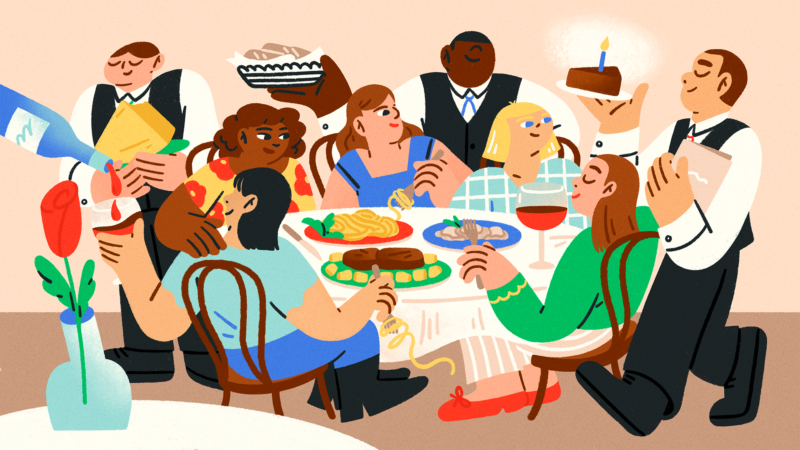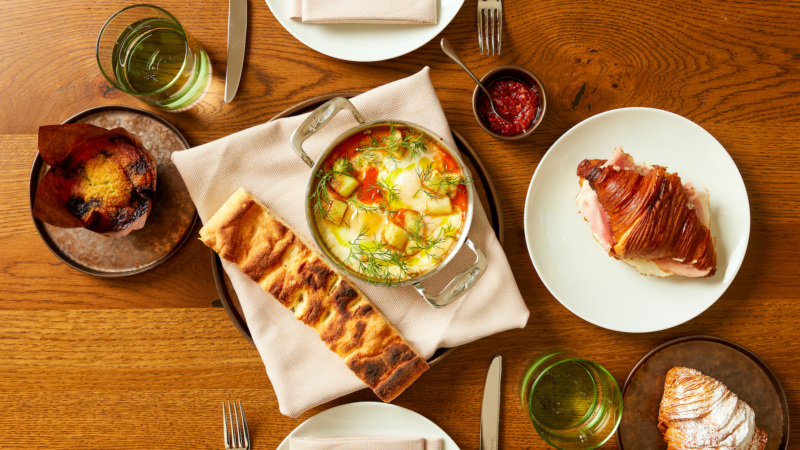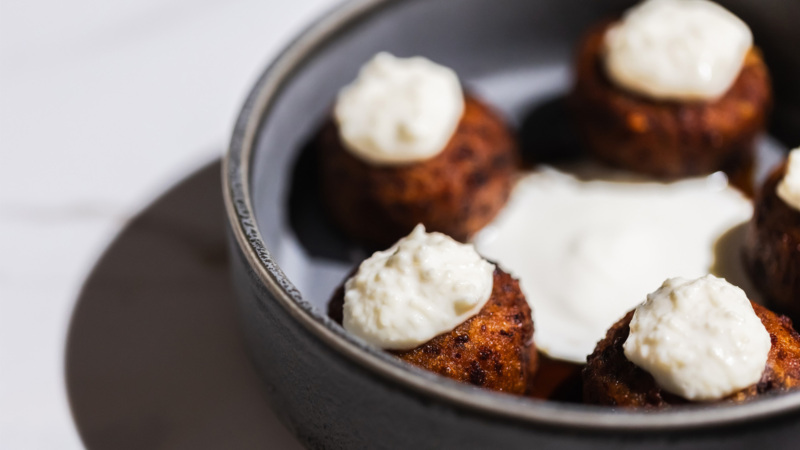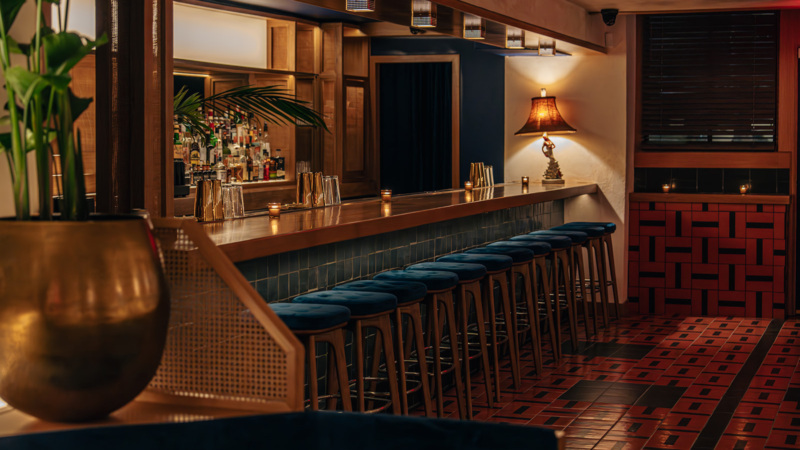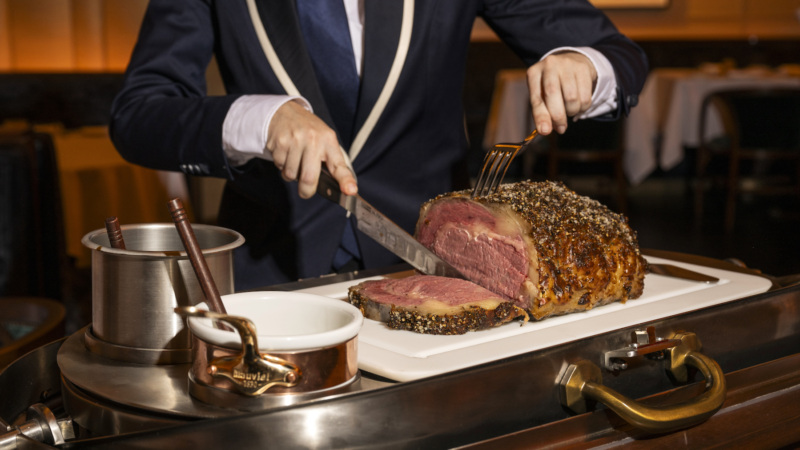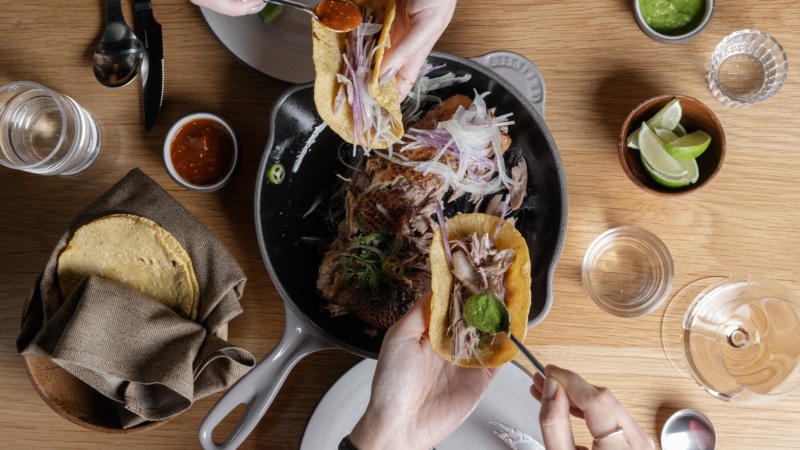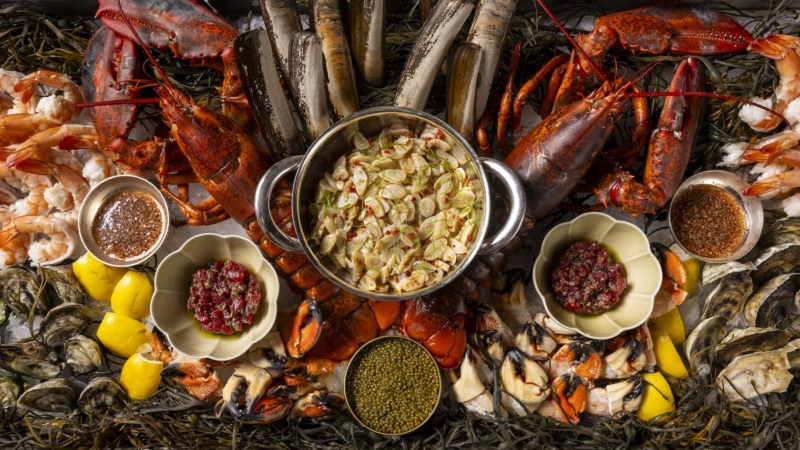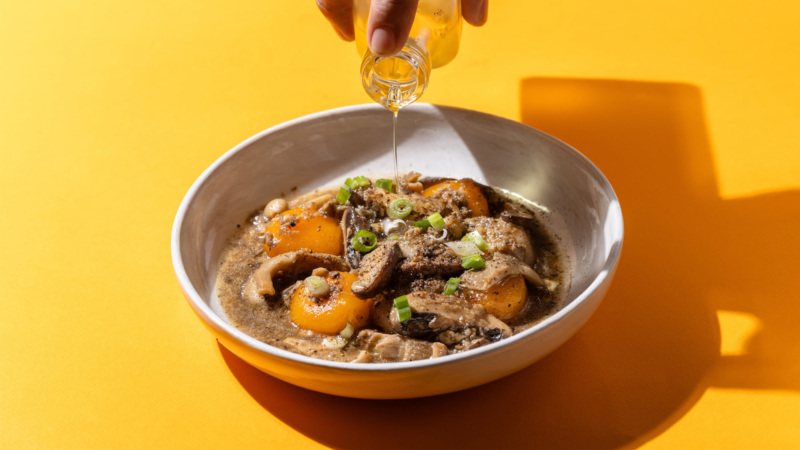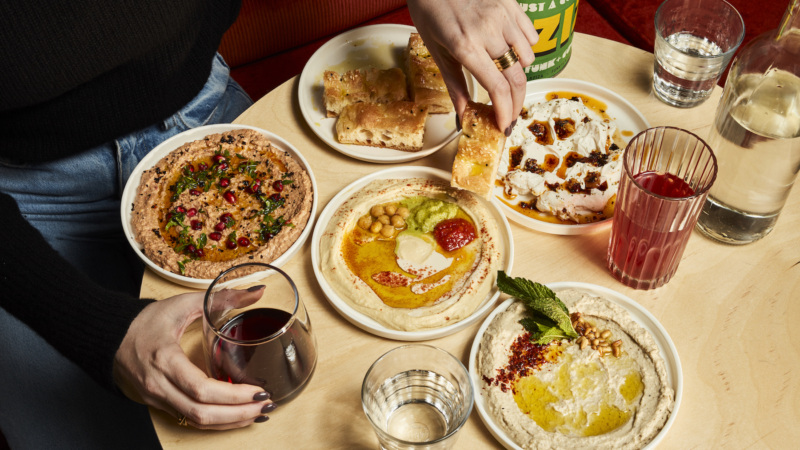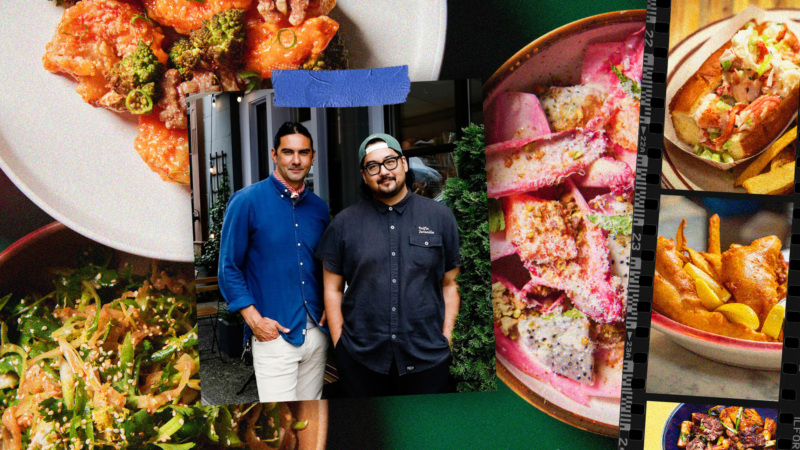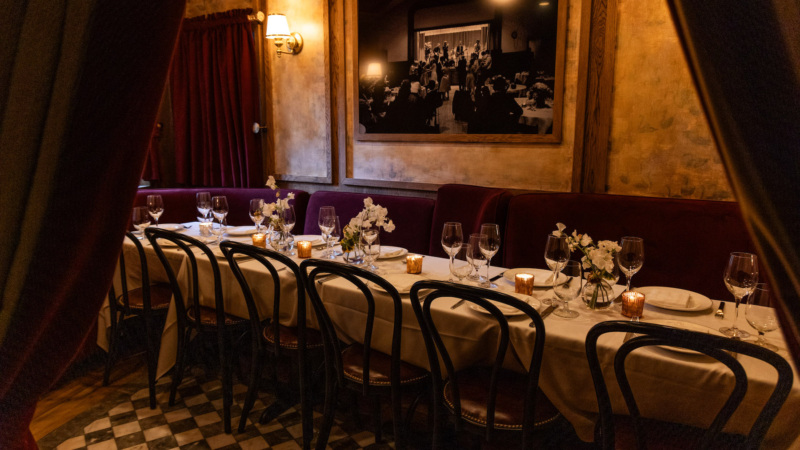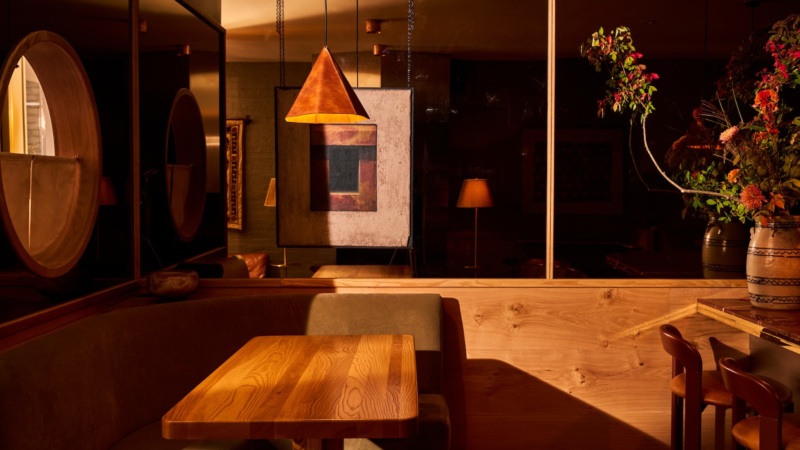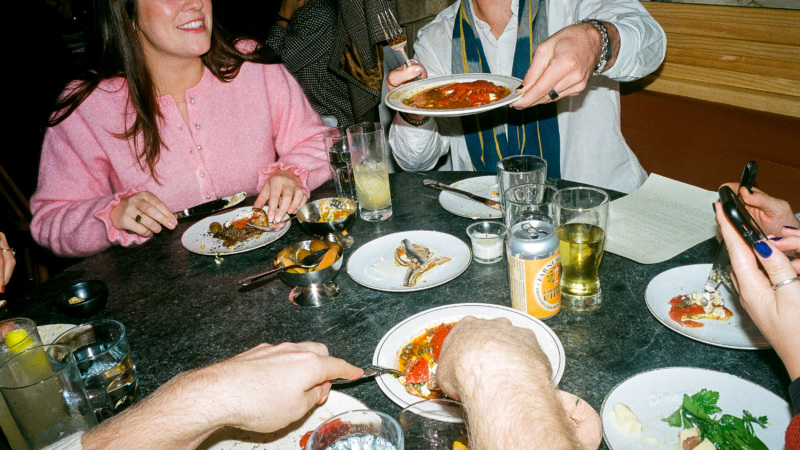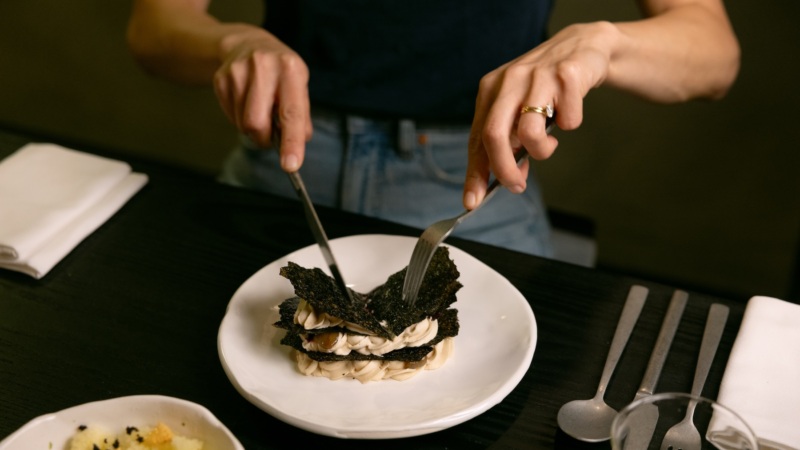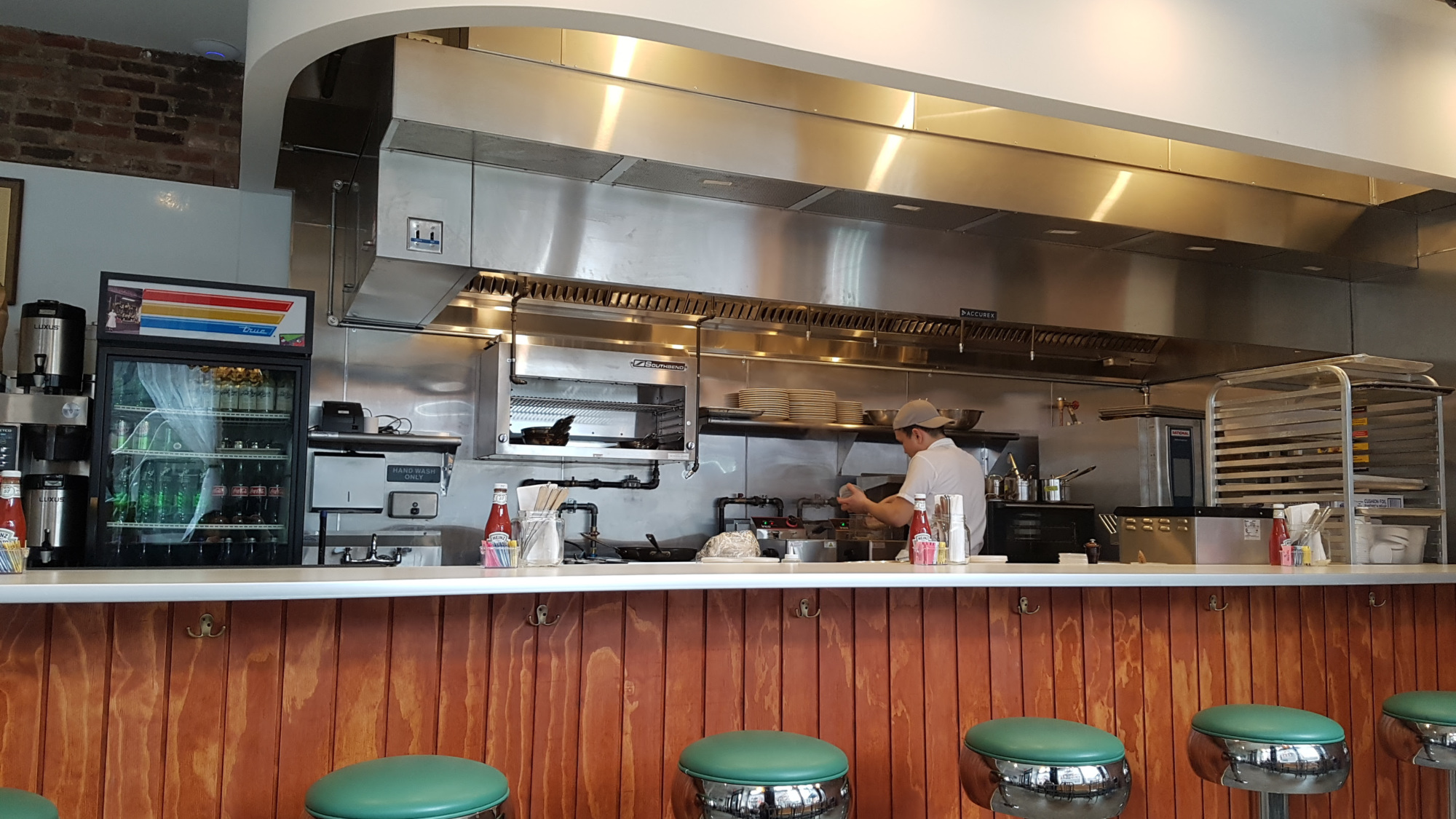
What Staying Open Means for Golden Diner
Just a little more than a year after opening Golden Diner to critical acclaim, chef-owner Sam Yoo found himself in the trenches of a very different dining landscape. In between hospital deliveries, neighborhood initiatives, and keeping the restaurant running through takeout and delivery, Yoo talked to Resy about the realities of staying open during a pandemic.
***
Resy: You’ve stayed open. What was that decision like?
Sam Yoo: It was not an easy decision. But ultimately, after speaking with our team, seeing that a majority of them wanted to work and felt comfortable commuting, and seeing the community needing us to literally feed them, we decided to just do it. We’ve had to make a lot of adjustments along the way.
How have operations shifted?
Thankfully, we were able to get the PPP loan and that really helped because we actually are one of the few restaurants able to use it, because we stayed open and kept most of our team employed through that. In terms of shifting, it was a lot of finding new purveyors and constantly reassessing operations. Scheduling and ordering has been quite challenging because a lot of the purveyors just cut down on their delivery days. It’s usually six days a week and a lot of them went down to three or just closed entirely.
It was almost like opening a new restaurant, not as intense, but definitely a lot of operational changes. In terms of just the day-to-day, it’s been very different because sales have dropped dramatically. It’s been a lot of scaling back on orders, continual brainstorming of how can we create work for our staff, new operations for donation-based meals, and partnering with various community-centric organizations. So we do that on top of running the restaurant six days a week.
How do you carve out time for the hospital deliveries?
We confirm a week ahead the delivery schedule for the following week, and then I get together with my team of chefs to discuss what we can make that is delicious and efficient time-wise. I’ve never really made 400-500 of the same meals, it’s more like catering but with much more strict sanitary guidelines. The preparation is pretty intense and takes a lot of planning, especially since the restaurant wasn’t built out for orders on this scale. We have to think about how much product to get in, how to portion and get the yields we need from that, do we have enough pans, kitchen equipment, space for that?
Thankfully, Off Their Plate, the organization we work with to coordinate all our donation-based hospital meals, has been super amenable. I think their team is all run by volunteers, all who are super professional, helpful, and communicative. In the beginning stages, they had delivery guys for us but it was too much to coordinate so we eventually reached out to our community through instagram for volunteer drivers which is how we got our own drivers, both who refuse to accept even gas money and do it for the express purpose of being able to do something good for the community. People are just banding together and being super generous with their time, and whatever resources they have. So I’m very grateful for that.
We’ve also recently started working with Heart of Dinner, run by our neighbors Yin and Moonlynn (of Kopitiam), who have galvanized and coordinated an army of volunteers and restaurants to make hot meals for the elderly Asian communities across the city, and deliver them with personal hand-written and illustrated notes. The amount of love all these folks put into these care kits is really moving. We also send meals to Clean Streets ambassadors, who work seven days a week cleaning and sanitizing all surfaces of Chinatown, through Heart of Dinner.
How do you feel now; have things cooled down?
For the restaurant, our team, our day-to-day, we’ve all gotten in our groove. None of us has gotten sick. That was always the biggest concern. We took all of the safety precautions and the protocols, implemented so many new initiatives, and were met with so many unanticipated challenges. At times it felt like too overwhelming of a hurdle, but in hindsight I feel like, thank god we stayed open.
How many people do you have working right now?
We kept all members of our team that wanted to work, which is around 20.
How do you envision reopening Golden Diner?
It’s going to be a real challenge because we have such a small space. We’ve been talking about ideas, like putting up a divider up between the counter and the kitchen, how to space out the tables, how to manage lines. There are so many things to consider. We definitely will abide by whatever the city mandates in terms of capacity, it’s just a matter of getting creative in making it work for our business and space.
Are takeout and delivery working?
It’s going okay, definitely not great. We’re not making extra money, just trying to break even each week and be able to pay everyone. A lot of that is due to the predatory third-party companies like Seamless and Grubhub. They take a huge percentage and put more money into marketing and promotions that lead people to think they are helping us rather than actually helping us by temporarily reducing commission fees. Which is really so deceitful. Unfortunately we have no choice but to use them right now, as delivery is 100% of our revenue. We’re doing what we can do to cut our costs in terms of trying to have our own website, and have people go through us and pick up through us directly, but public knowledge is not widespread and consumer patterns are hard to change.
How do you see small independent restaurants like yours survive and thrive after all of this?
I’ll be honest: I think unless there’s an actual restructuring of current leases with our landlords or some sort of city mandate, or federal bailout for lenders to relieve landlords on their financial duties, then all of these merch, Good Hood deals, all of these little Band-Aids won’t fix the bigger issue. Because for most businesses, especially in New York, all the fixed costs are going to crush us: rent, taxes. But once that is addressed, food costs, labor, and all that can be scaled back to however much the business needs.
Did you feel any of the xenophobia that was going on in Chinatown when this first started?
I definitely saw Chinatown grow quieter long before the citywide shutdown. A lot less business, so much to the point where a lot of local businesses closed because it wasn’t worth it for them to stay open. And these are the OG Chinese restaurants that don’t close for anything, not even on Christmas. I’ve heard a lot of accounts of varying levels of xenophobia from friends, from pointed stares to getting spat on in the streets to storefronts getting vandalized. It’s really awful and disappointingly ignorant.
Did it affect the restaurant at all?
I don’t think so. I like to think it’s because our customers aren’t as close-minded. It’s probably also not as obvious the restaurant is Asian-owned since we’re a diner. Luckily, we weren’t explicitly targeted by xenophobic fears and that nonsense.
Anything else you’d like to share and talk about?
I just want to express gratitude for not only our regulars who send us so much love and encouragement, but also our community of fellow restaurants we’ve been working with, who have been doing so much and truly giving their all to better the community.
I’m especially humbled by and grateful for the countless Asian-owned business and community members that are taking action to do amazing things in the face of crisis. Heart of Dinner and Kopitiam have been pillars in the community since inception, places like Saigon Social and Little Tong that offer discounted and free meals for those struggling financially, 886 spearheading Bento Essentials for hospitals along with Raku & Ho Foods, Welcome to Chinatown coordinating hospital meals and navigating business tools for small mom & pop shops to keep small Chinatown businesses alive, Pearl River Mart raising money to send thousands and thousands of PPE to hospital, the endless list of Asian-owned businesses sending meals to first responders and donating to food pantries — there are actually too many to list and that makes me incredibly proud.
Noëmie Carrant is a Resy staff writer. Follow Resy on Instagram and Twitter.

